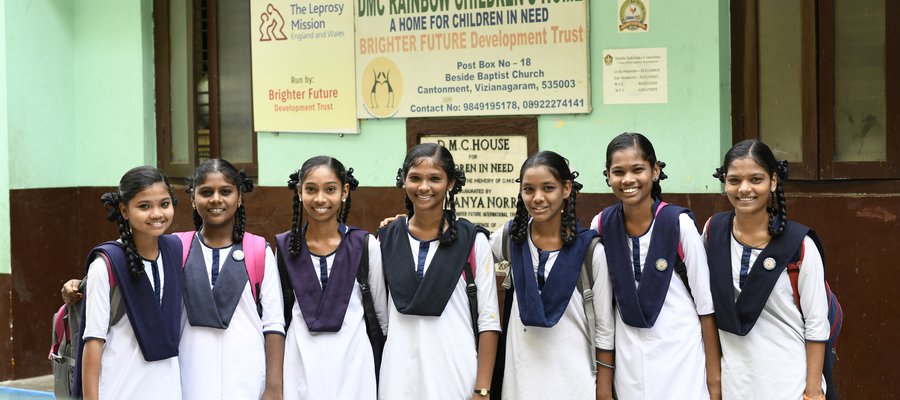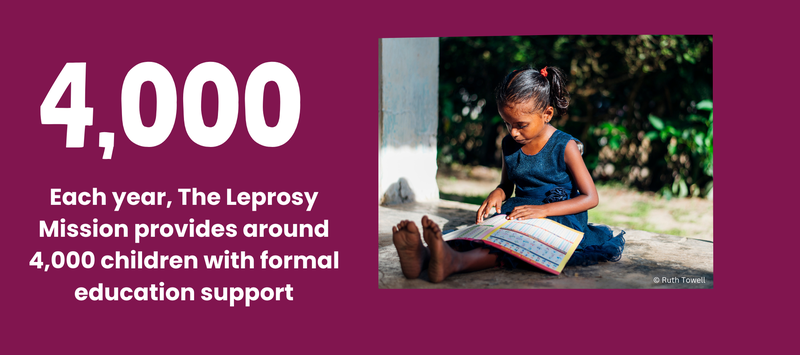Education
Education
Education is a vital part of The Leprosy Mission’s work – it’s an essential tool in our mission to reach a world with zero transmission, and zero discrimination against people living with or affected by leprosy.

We have projects across the world that deliver education – both for those directly or indirectly affected by leprosy and for those who are from marginalised backgrounds. People affected by leprosy are often among the poorest and most marginalised and can be deeply affected by other poverty-related challenges in their communities.
Our programmes include:
Vocational Education Programmes – both residential training centres, and working through to build skills through community-based projects
Formal Education – both by providing scholarships to enable children from poorer families to attend school, whilst also working through our livelihood programmes to support those families to increase their own ability to pay by strengthening their family income.
Literacy classes – helping build the vital skills of reading and writing, especially in countries with high levels of illiteracy among women and people with disabilities.

Education support in Mozambique
One example of this kind of support is in Cabo Delgado province in Mozambique where we set up a project called Iphiro Yohoolo, which means 'Road to the Future' in the local dialect.
This project aims to give a better future to children and young people affected by leprosy and physical disability, young people just like Laurinda (pictured). School uniforms and equipment are provided for 200 children and parents' groups have been created to encourage them to value their children's education.
The Iphiro Yohoolo project focuses particularly on the education of girls, who are particularly at risk of being denied an education. Girls' clubs have been set up in schools to give girls additional life skills, training, and extra-curricular education. After the girls graduate school, the project helps them to access vocational training.
With projects that support the education and vocational training of young people, we have the power to change the narrative of a whole generation; the impact can be enormous.